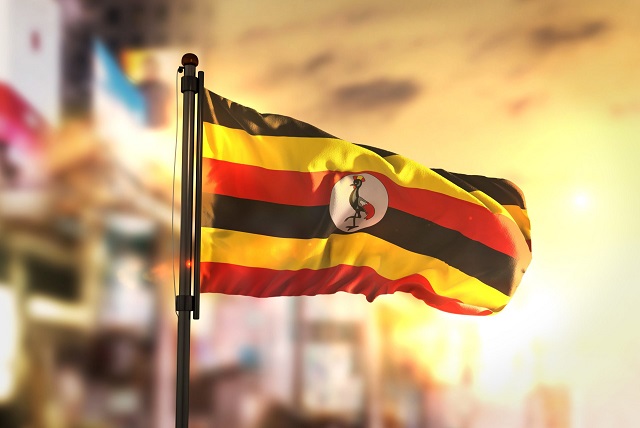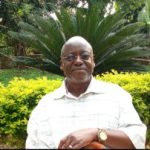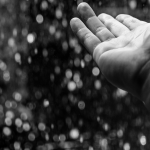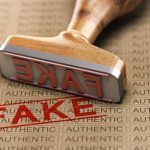When the British colonialists arrived in Uganda in 1894, They set about weaving so many traditional nationalities into one. The weaving process ended in 1962 with the formation, constitutionally, the Commonwealth realm of Uganda consisting of 15 entities among which were numerous indigenous groups. In a way, the colonialists constitutionally enforced the togetherness of disparate entities into one they initially gave that name at independence on October 9 1962. Constitutionally this was to become Uganda on the first anniversary of independence on October 9 1963.
To ensure that Uganda was one functioning unit, the Uganda Constitution 1962 provided for a centralised army, police, prisons, judiciary, executive, legislature and administration. The question is: Did the new entity called Uganda become any stronger when the different traditional entities are woven together than they were separately before the weaving?
Let me first off give you the different entities that were woven together.: These were Acholi, Ankole, Buganda, Bugisu, Bukedi, Bunyoro, Busoga, Karamoja, Kigezi, Lango, Moyo, Sebei, Teso, Toro, and West Nile. Distributed among them were 55 different indigenous groups – all recognised by the Uganda Constitution 1962, Uganda Constitution 1967, and the current Uganda Constitution 1995. However, the Uganda Constitution 1995 constitutionally created a new indigenous group called Banyarwanda. This appears as Indigenous Group 20 in the list of Indigenous groups of Uganda in the Uganda Constitution 1995.
Then let me ask: Is Uganda any stronger today when the enforcement of togetherness is achieved by power through the use of force than it was on Independence Day? And what do we need: An effective leader or a strong leader?
We need to know what is meant by being strong. We need to know what determines that a country or nation is strong.
A nation is a cultural unit, not a political one. It is defined by shared language, tradition, and history. A nation can exist with neither formal institutions or “strong men”. Strong men are not always necessary for a nation to triumph in the face of challenges. The nation only needs a leader who can see further afield and lead the people out of the quagmire to genuine prosperity.
Strength is frequently equated with power. The strength or power of a country or nation is determined on the basis of seven categories of power: economy, demography, military, environmental and natural resources, politics, culture and technology (Clingendael, 2017). However, more often than not, a country or nation is said to be strong or powerful by reference to its economy or military. However, the strength or power of a nation or country does lie not just in its economy or military, but also in the character and contribution of its people to its growth and development. It is the duty, obligation and leadership of a country or nation to ensure that the character and contribution of the country or nation are sustainable or not destroyed by his pursuit of power, glory, wealth and domination of people. For example, the character and contribution of the people to a country’s well-being may be destroyed if a leader commits his time and energy to undermine freedom, justice and democracy to build a dynasty instead of a united, prosperous, peaceful country in the short-, medium- and long- term
Rabia Sagheer Ahmad (2024) believes that a strong country or nation is built on the foundation of unity, education, innovation, hard work, and shared responsibility. He believes a strong nation or country is a collective effort that involves every citizen, regardless of their background, occupation, or status. However, unity should be built within the population, not enforced by the use of the gun because unity built that way will dissipate as soon as the one building it that way leaves the politico-military or sociopolitical scene. The one replacing him may not be adroit enough to continue in his legacy. Chaos and violence in leadership and among the population may come to characterise the country or nation.
Therefore, power based on the gun is transient, even if it may last as long as Libya’s Muammar Gaddafi’s 42 years in power, and leave the country in total chaos and uncertainty. Other words meaning the same thing are transitory, ephemeral, momentary, fugitive, fleeting and evanescent meaning lasting or staying only a short time. Some people think 50 or 60 years is a long time in power, but in ecological and ecosystem time, it is a very short time. One who has been in power is soon forgotten and the world moves on. It is the costs of his being in power that do not easily disappear in the minds of men and women of the time.
Actually, power is like love; it is “easier to experience than to define or measure.” Just as one cannot say “I love you 3.6 times more than her,” scholars cannot calculate the balance of power precisely, because power is largely unobservable and context-dependent. Jarvis, et.al. (2019) stress indigenous heritage as the real strength of a nation. To them six hubs describe the components of indigenous heritage, namely: Country health, People’s health, Heritage and knowledge, Culture and community, Education, Empowerment and economics. Therefore, for Jarvis et.al., if you want to analyse whether or not a nation is strong with strong people, these are the yardsticks. Military or militarism has nothing to do with the strength of a people or nation. These are diversionary and a waste of time, energy, money and resources.
According to Jarvis, et.al. (2019):
Country Heath hub reflects the need for the country (land, lakes rivers) to be healthy for Traditional Owners to feel that they have carried out their cultural obligations and responsibilities in looking after the country. While this hub encompasses Western science concepts such as ecosystem health, or water quality, these ideas are expressed using Traditional Owner language and the concepts emerged through the Indigenous-led methodology.
People’s Health Hub looks through a cultural lens, at physical and emotional needs to keep the body and mind healthy. It implies access to traditional medicine, traditional spirituality, social and emotional well-being, cultural well-being, access to medical services, access to traditional foods and a sense of belonging and identity.
Heritage and Knowledge hub comprises knowing, managing, protecting, and having access to your country and heritage as well as being able to continue the oral history, transfer of knowledge and interaction with Western science. The concepts embedded within heritage and knowledge are so heavily overlapping and inseparable that they are represented by one hub. Heritage and knowing have seven attributes, namely: oral history, knowledge of country and heritage, managing heritage and knowledge, protecting knowledge and heritage, access to heritage sites, traditional owner knowledge transfer, and Western science.
Culture and Community Hub Culture and community encompass the different aspects of Traditional Owner culture as well as mentorship and community activities. This hub also recognises the need for Traditional Owners to know their kinship structure and totems. Culture and community are strongly interlinked and comprised of overlapping concepts, as cultural practices are generally inseparable from the community undertaking those practices. Culture and Community have 10 attributes: Traditional owners’ voices at all levels, involvement in and ownership of community activities Cultural mentorship, local membership, language, lore and ceremony, tool making, hunting and gathering, Arts, songs and dance, kinship, family and totems,
Education hub reflects that education includes cultural learning, western education, and the two-way sharing of knowledge in all areas, such as Indigenous science and Western science learning from each other, Traditional Owners learning from their neighbours and sharing with each other within their communities. Education has five attributes: learning from the elders, career opportunity pathways, training, passion to learn, two-way sharing
Empowerment and Economics hub recognises the connectedness between empowerment and economics for Traditional Owners through support and creation of
Traditional Owner-led actions. The hub has nine attributes: Ownership, greater level of management, better policy, traditional owner caring for the country, more traditional owner-owned businesses, tourism, and arts, employment in the country, equal opportunity, people’s rights, interests and goals in life.
There is no doubt that over the last forty or so years there have been a lot of disruptions and distortions that have affected the different hubs in Uganda negatively. These disruptions and distortions have been achieved by power through bantustanisation of the country, posting people from elsewhere to govern the locals in different ways at different levels just like was the case during British colonial times, land grabbing by people from elsewhere, introduction of foreign development models (Operation wealth creation, Myooga, Parish development model) that ignore the structure and function of traditional societies in Uganda and end up excluding local communities from the development process. Whatever is or has been happening has instead made the institution of the President stronger while weakening, displacing and dispossessing the periphery.
People who refuse to give up and suffer for the sake of truth and honour, brave men who work while others sleep, and who face hardships can make a nation great and strong. These are the people a country needs to have in a critical mass in order to be counted among strong nations; not those who wield weapons of destruction
We used to have a Ministry of Culture and Community Development, which used to ensure that the central government was sensitive to the needs, choices and expectations of traditional society and protected it from direct harmful external forces. Today we have hapless communities almost excluded from development. Instead, it is a select few individuals, often with partisan interests that are targeted by the government for development, with the falsehood that their development would trickle down and permeate throughout the communities.
We also used to have a very successful cultural troupe called The Heartbeat of Africa, which was the conglomeration of all the 15 traditional nations of Uganda. Its role was to market our cultures – dances, songs, languages – globally. Unfortunately, the NRM government destroyed it by denying it recognition and withdrawing funds the moment the Ministry of Culture and Community Development was abolished. Through bantustanisation the different cultures are more or less conquered by limiting them to their areas and preventing them from interacting with the others in any meaningful way. This is like when a people are occupied, conquered and dominated. Now we have the cultures of foreigners flourishing in Uganda, while those of the traditional peoples are threatened with extinction.
One thing is true. We do not need a strong individual to be called a strong country or strong nation. We cannot depend on the strength of individuals. Strong individuals are a blessing, but not a requirement. We need strong traditional institutions, in particular, to qualify to be a strong country or nation. Without strong institutions, society is prey to corruption in the strong men and women of power.
One writer says “strong institutions distribute the weight and can flex. They aren’t broken if they lose a strong leader. So, they’re much less vulnerable. Strong people create and run strong institutions. You can have strong people without strong institutions, but this can’t help a nation, only the individuals. You can’t have strong institutions without strong people running and supporting them, and without strong institutions, you can’t have a strong nation. The needs and values of a nation will determine the type of institutions that are created.
It is probably better to have a strong government rather than a strong leader. Strong leaders tend to be selfish, greedy, arrogant and disrespectful and are likely to be anti-people, anti-law, and anti-country, in order to enhance their own country.
A strong government typically possesses specific characteristics, including:
-
Stability: A stable government maintains order and minimizes internal conflicts.
-
Legitimacy: Citizens recognize the government as a legitimate authority that represents their interests and protects their rights.
-
Effective governance: A strong government efficiently delivers public services, enforces laws and policies to address society’s needs.
-
Transparency and accountability: Openness in decision-making processes and accountability of government officials foster trust and prevent corruption.
-
Rule of law: A strong government upholds the rule of law, ensuring that laws are fair, justly enforced, and applied equally to all citizens.
-
Economic prosperity: A government that creates favorable conditions for economic growth, job creation, and social welfare contributes to overall strength.
-
National security: Protecting the nation’s borders, maintaining a capable defense force, and ensuring the safety of citizens are crucial aspects of a strong government.
Note that a strong leader is not included here.
Therefore, if you asked me “ARE WE REALLY STRONGER TOGETHER ANYMORE THAN WE WERE ON INDEPENDENCE DAY?” I would answer in the negative because our traditional owner country institutions have been captured and weakened to enhance the power of the ruler rather than build a strong country as a cultural unit rather than a political unit, which can be converted to anything for anything. There are indeed fears that the violence now wrecking the Great Lakes region may result in Uganda being part of a bigger country consisting of Rwanda, Uganda and Mulenge in the Democratic Republic of Congo. One school of thought argues that the resources of Uganda and the DRC are the ones being used to destabilise the Great Lakes region in order to build a new country through violence. According to the school, when the feat is completed, we shall hear of another country the same way we came to know a country called Tanzania when Tanganyika and Zanzibar coalesced. Time, the ultimate judge will tell. Sometimes projects fail.
For God and My Country.
Further Reading
Clingendael (2017). What makes a country strong? https://www.clingendael.org/sites/default/files/pdf/What_makes_a_country_powerful_3e_proef.pdf Visited on 18 February 2025 at 19:15 pm EAT
Crawford S. R. (2019). What does it mean to be strong? Medium, May 22 2019, https://medium.com/@authorsrcrawford/what-does-it-mean-to-be-strong-b188e459cd53 Visited on 18 February 2025 at 20:03 pm EAT
Jake Noviello (2015). What Makes a Nation Strong Essay. Help Me, 22 January 2015, https://www.123helpme.com/essay/What-Makes-A-Nation-Strong-Essay-509665 Visited on 18 February 2025 at 19:34 pm EAT
Jarvis, D. , Hill, R. , Buissereth, R. , Moran, C. , Taibot, L. , Bullio, R. , Grant, C. , Dale, A. P. , Deshong, S. , Fraser, D. , Gooch,M. , Hale, L. , Mann, M. , Singleton, G. , Wren, L. 2019, Strong peoples – Strong country Indigenous heritage monitoring framework: Summary report, Great Barrier Reef Marine Park Authority, Townsville. https://elibrary.gbrmpa.gov.au/jspui/bitstream/11017/3537/9/Strong-Peoples-Strong-Country.pdf Visited on 18 February 2025 pm at 19:50 pm EAT
Joseph S. Nye Jr., The Future of Power (New York: PublicAffairs, 2011), p. 3.
LSE (2017). Is a strong Leader really what a country need? LSE May 12 2017, https://blogs.lse.ac.uk/politicsandpolicy/is-a-strong-leader-really-what-the-country-needs/ Visited on 18 February 2025 at 20:10 pm EAT
Rabia SagheerAhmad (2024). How we make a country strong. Medium, 30 November 2024. https://medium.com/@rabiasagheerahmad1996/how-we-make-our-country-strong-150db3ab257e Visited on 18 February 2025 at 19:20 pm EAT.
This post was created with our nice and easy submission form. Create your post!








